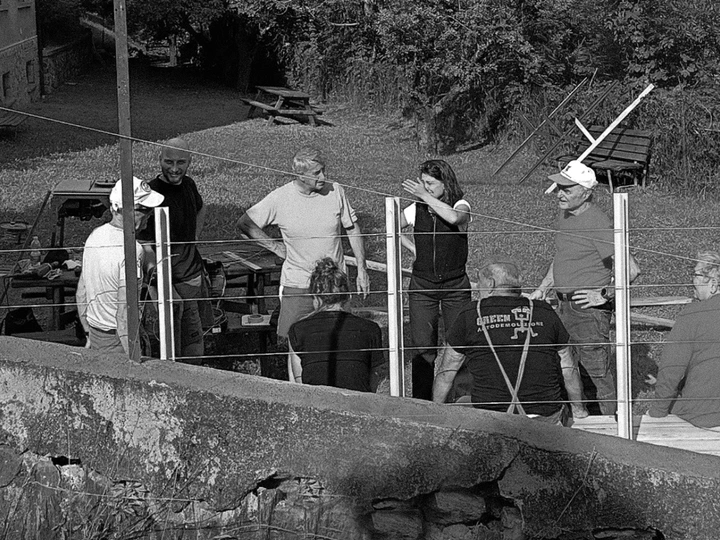Poesia nascosta del costruttore

Alba Marcela has been experiencing different opportunities in the last year after graduation, ranging from closely assisting some exhibitions including international ones, to following in-depth a construction site and developing a project that particularly involved the local community and the workers.
These experiences made her reflect on the perception and approach that architects—as “directors” of construction scenarios—adopt, and how this approach influences the nature of the architectural process and its result. During university thesis, she worked directly with the Ayoreo indigenous community in Paraguay, for a broader idea of architecture based on them and its impact on educational aspects. This experience helped her understand the slow process of working with different situations and cultures, which requires not only openness and respect but also genuine common sense. In today’s world, she has decided not to ignore the realities in which problems require answers that—since these problems carry memories, culture, politics, and paradigms—can contribute to a better version of society through architecture.
She is a young Paraguayan architecture graduate, born in Managua, Nicaragua, in 1999. Lived in Paraguay and trained as an architect at Polimi in Italy where she’s stablished since 2017. She currently works as a teaching assistant at the same university with Massimo Ferrari, Claudia Tinazzi, and Cristian Undurraga, collaborating with them as well on exhibitions. Collaborates with Studio Ritz in Mantova. Recently won a competition (w/ Simon Muller) in the technical and popular jury categories for the small-scale architecture project "Microazioni Montane" with the community of Stadolina (IT), a project based on participatory self-construction of a chair and border on a garden of the previous Kindergarden of the village, built on june 2025 with the local builders and community.
“Son las 6:00 hrs de la mañana
El artesano despierta (…)
Llega a la obra (…)
Cuelga su bolso sobre la rama de un árbol
Ubica el tereré sobre un caballete de madera
Inicia la jornada de trabajo (…)"
Fragments of a day of a Paraguayan Guaraní bricklayer, written in prose for José Luis Uribe during his doctoral research (2020) on the artisanal process as a construction method in Paraguay, where the builder is called craftsman.
The project stems from a juxtaposition of thoughts surrounding those who construct the spaces and objects we inhabit. These thoughts are diluted in different realities and motivations, which outline the profile of builders as a more complex figure than the simple executor, linked not so much to the post-production of the work as to the process itself. The project distinguishes the builder's abilities in the construction industry not only through their technical expertise, but also through their capacity for improvisation.
There is a stigma, a prejudice that the creativity of builders—understood as the productive act of invention—is limited by their role as mere executors of a design, a plan or a construction site rule. Yet, there is undeniably a construction process in which what eludes the design is improvised, rethought, and resolved by a thinking hand, which proposes an idea, a solution, a small, ingenious response. This is the moment when the builder practices his hidden poetry.
The research results aim to gather experiences that not only verify and highlight these realities, but also spark a series of reflections, not only for those already familiar with these processes in the discipline of architecture and construction. A sort of builder's archive, aimed primarily at those familiar only with the inhabiting phase, the one in which the builder becomes merely a user. In a world where the hand that thinks and builds is increasingly rare, perhaps we should learn from those who create hidden poems.